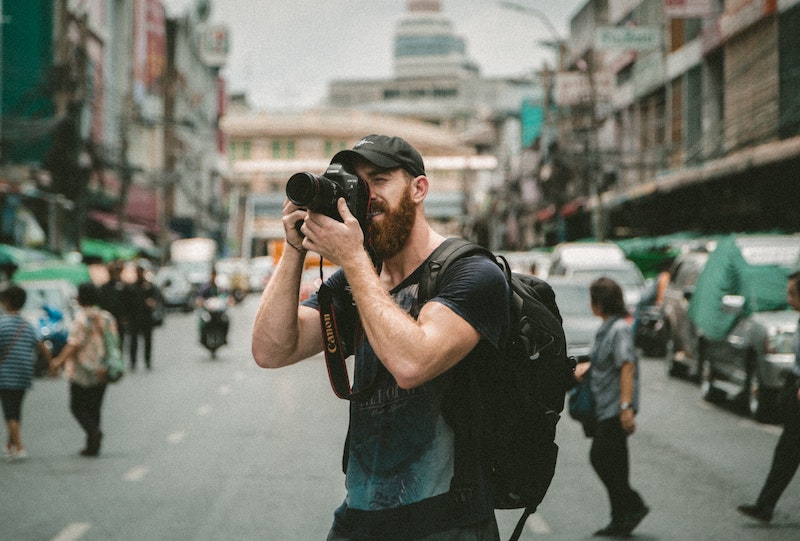VISUAL PROMPT
by Jakob Owens @ Unsplash

Your protagonist is a photographer, setting out on a project that is important to them. Tell their story.
The Day
He packed his cameras and lenses deliberately. It was more gear than a typical shoot, but this one would be different. He had chosen the bag for mobility, and his choices were pushing the limits of what it could contain while still giving him the speed of access he needed.
This assignment was going to be different. He had known that for the week, hanging over him as a reminder in the back of his head. He looked up at the awards on the wall. Each cataloged a moment when he had been in the right place at the right time.
What the awards did not and could not acknowledge was that he had simply known what the right place at the right time would be. He didn't know how he knew. That part was still a huge mystery. It now appeared it would always be so. It's too late now to worry about figuring out how. When he made the news tonight, it was one of the first things they would say. "The award-winning photographer." "The man who captured so many iconic moments."
He looked down at his bag. The battered Sony was only a year old and already showing age from the demands of daily press coverage. There was also his grandfather's ancient Olympus. The camera that had captivated him so many years ago when he was so young. It was the camera that had started his whole cursed journey in photography. Grandad had shown him the cramped, claustrophobic room under the stairs in the basement of the old house. It had been so strange: reels on the shelf, the enlarger on the counter, the film and prints hanging from the wire, the chemical smells of traditional imaging. He had grown up in a digital world, but Grandad had shown him the magic of silver.
He would dangle the old film camera from his shoulder next to the digital. When he captured the early moments, the digital would be the first images transmitted. They would be the precursors, the story before the story. He just knew that. But the film, quickly spun back into its metal canister and buried deep in his pocket, would be the iconic image to survive and remember The Day. It was analog history in a temporary digital world. He just knew they would recover it from the body and rush in frantic despair to find a lab, any obscure lab, that could still handle it on this day. It would bear scars of the violence of its creation and the near tragedy of its handling. It alone would be a visual testament to the moment that happened. And despite all the risks and poor odds, it would win him a posthumous Pulitzer. That image would be everywhere overnight.
He accepted the supernatural truth of it, opened the door, and headed out to do his job.
